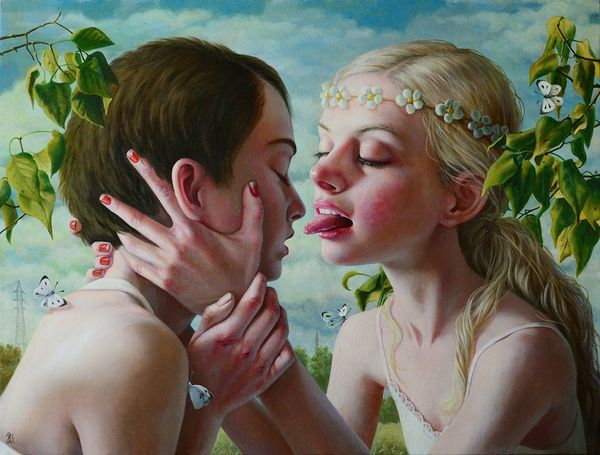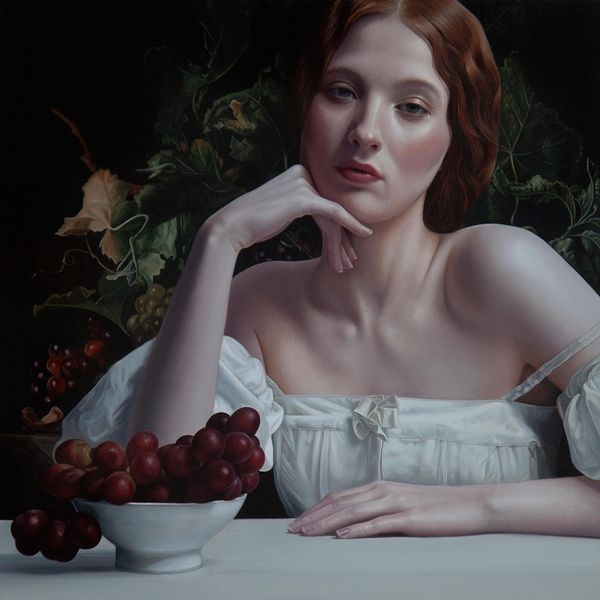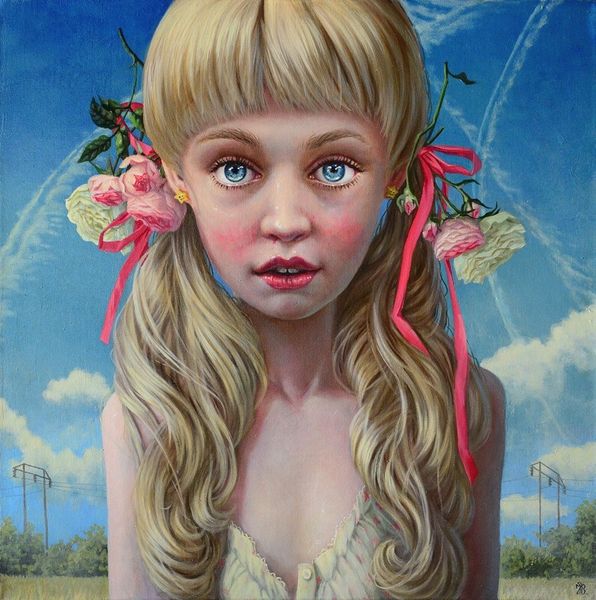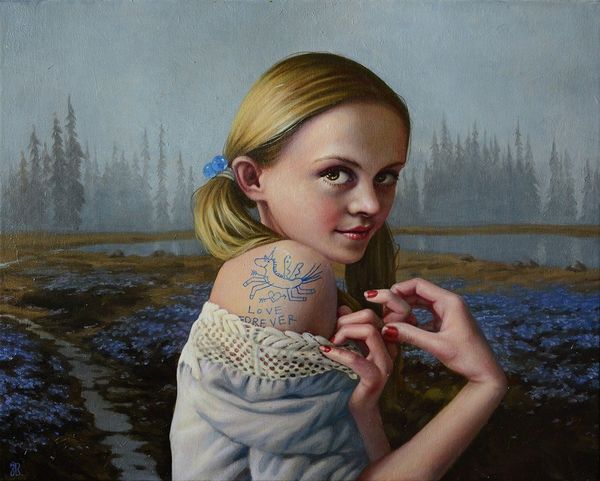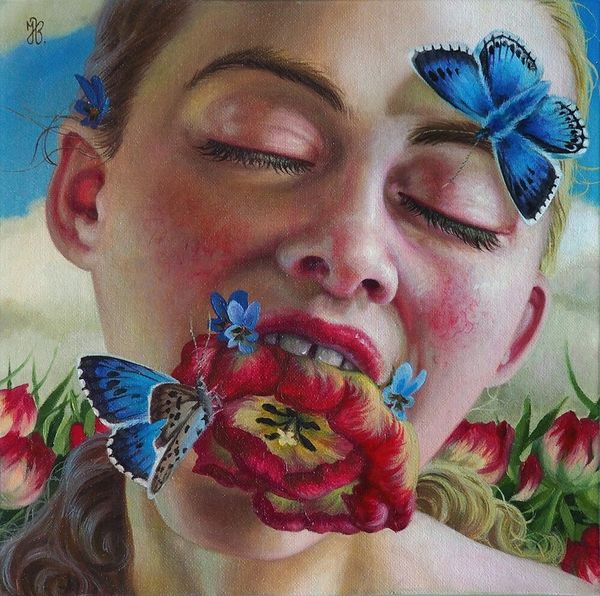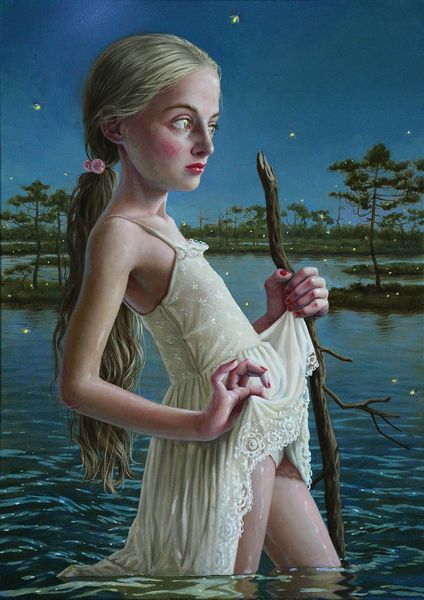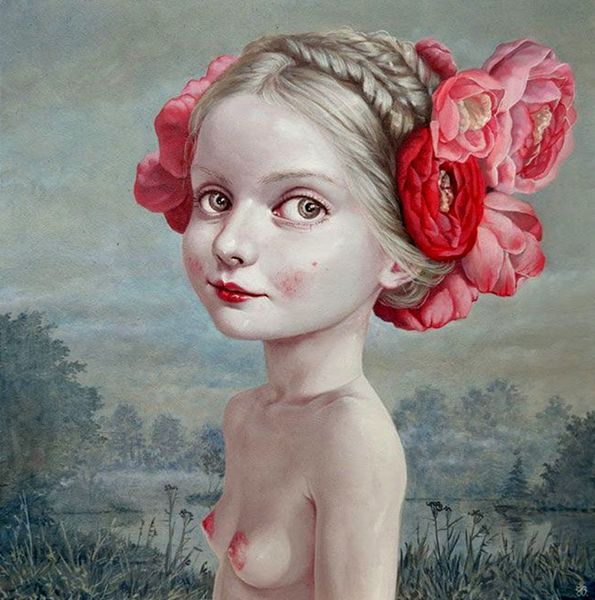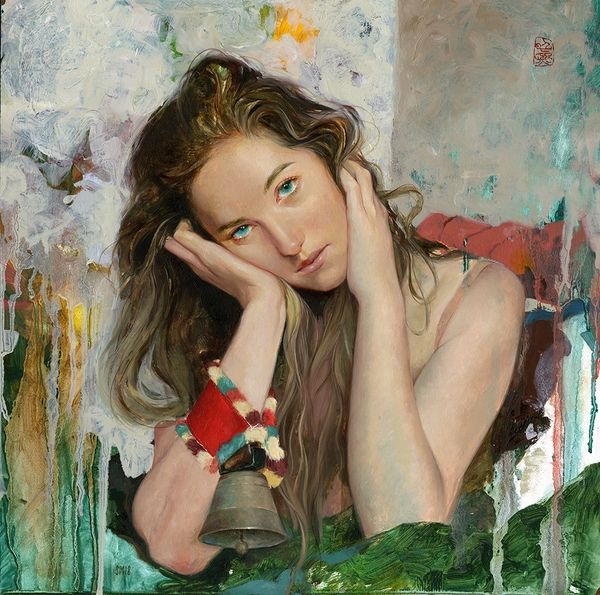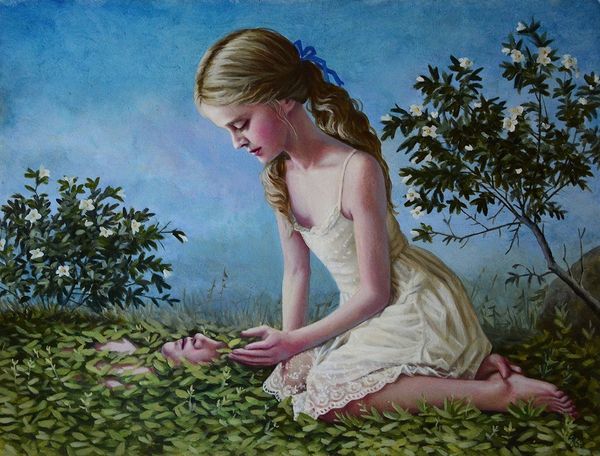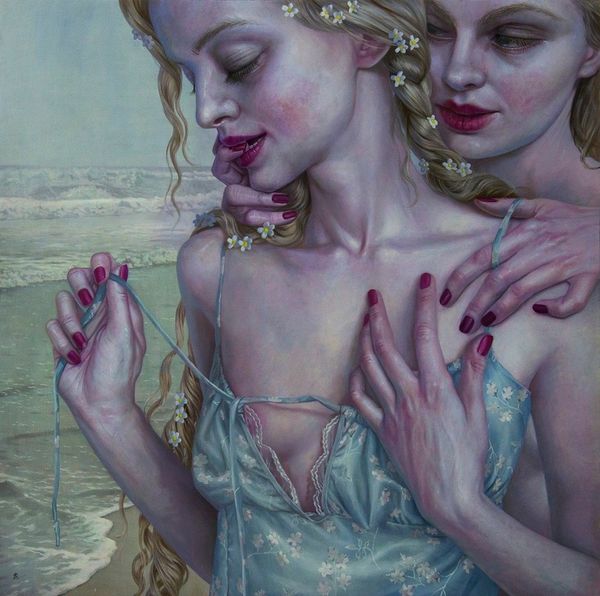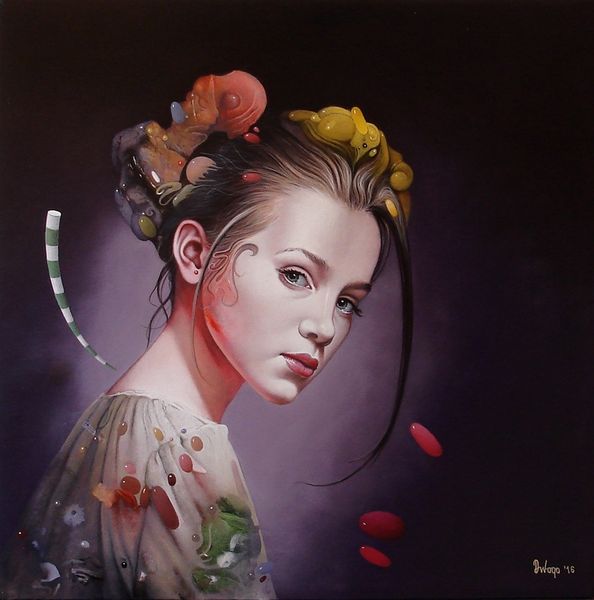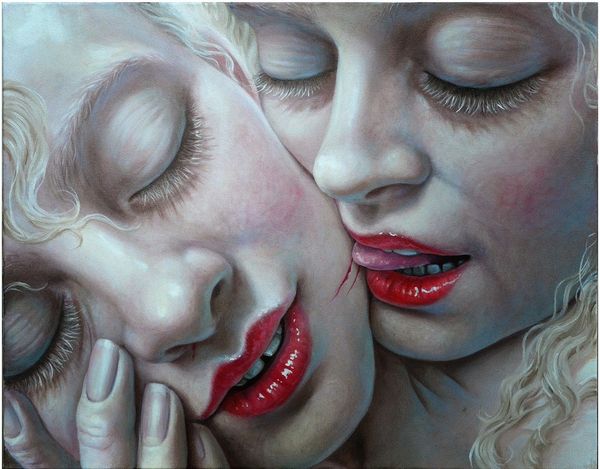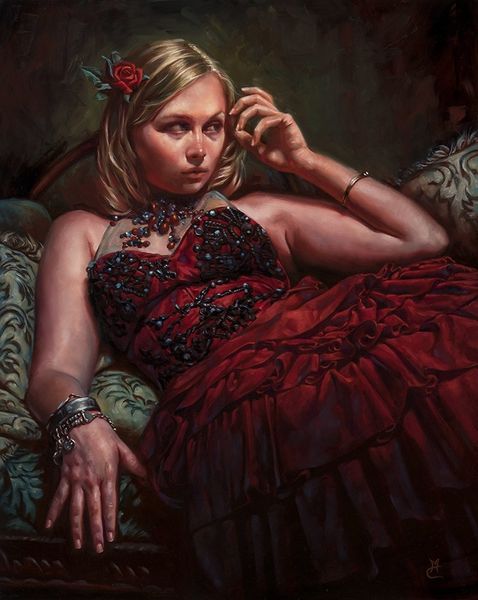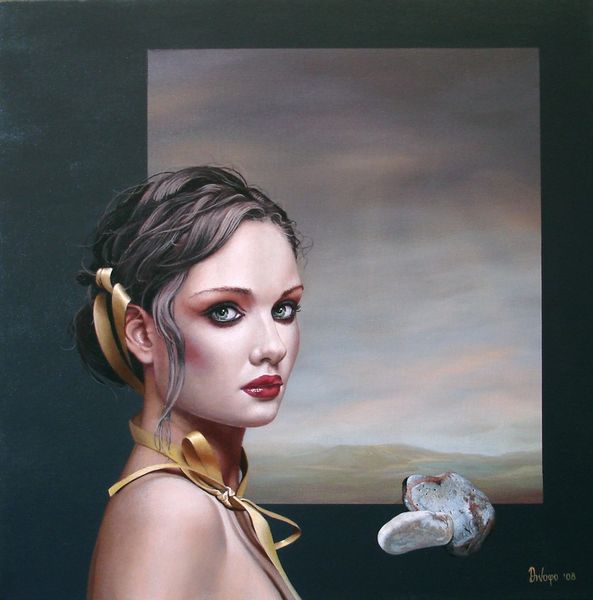
Copyright: Modern Artists: Artvee
Curator: Jana Brike's "when I kissed the teacher," dating from 2015. What a compelling, somewhat unsettling image. Editor: There’s something captivating, almost voyeuristic about it, don't you think? The girl's expression, her closed eyes, the smeared red around her mouth…it’s intensely intimate. And there is all that unsettling red. Curator: Exactly! Look at how the composition draws your eye. The tight framing isolates the girl, pressing her into our space. Note the strategic placement of light, highlighting the smeared color and drawing a clear focal point at her expression of implied pleasure or guilt. Editor: Yes, but why *this* kind of intimacy, this transgression, and the setting. Those slender birch trees behind her establish a strong sense of place, I see an almost gothic fairytale quality in this. This isn’t merely about aesthetics, but perhaps also about questioning childhood innocence in a complicated cultural context. Curator: I concede to the location and atmosphere. However, the real fascination for me lies within Brike's masterful use of color, where shades become narrative elements, particularly that vibrant, symbolic red. We can dissect how that splash interacts with other, almost faded pigments. Editor: And considering where that vivid color is, do we interpret that boldness as the forbidden knowledge found only beyond childhood, as this generation defines its identity? This painting becomes an assertion of freedom from older conventions. Curator: Potentially. But even divorcing it from pure sociopolitical theory, one cannot deny how its surface texture draws you in. See how she delicately blends the pigments, while starkly contrasting those soft blushes of color? Editor: A point well taken. So, whether viewed through the lens of social narrative or formal structure, I find myself even more engrossed than I was when we started. Curator: Precisely. Its enduring strength lies not in answering what one witnesses, but rather in continuing the questions of its creation, or reception.
Comments
No comments
Be the first to comment and join the conversation on the ultimate creative platform.
